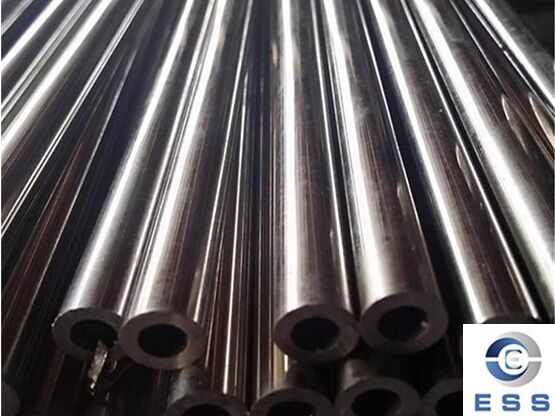
Implementation standards are an important
basis for the production and quality control of precision steel tubes. By
following and implementing relevant standards, the quality of precision
tube can be ensured to be stable and reliable, meeting the needs of
specific application areas. At the same time, implementation standards are also
helpful to promote technical exchanges and cooperation within the industry and
promote the healthy development of the precision tube industry.
The current commonly used precision tube
implementation standards are mainly: China National Standard (GB/T), American
Society for Testing and Materials Standard (ASTM/ASME), International
Organization for Standardization Standard (ISO), European Standard (EN), German
Standard (DIN), Japanese Industrial Standard (JIS), etc. The following will
introduce you in detail.
ASTM/ASME main implementation standards
ASTM international standards are also a
common standard in the world. It is a standard formulated by the American
Society for Testing and Materials, which has made an important contribution to
global quality standards. ASTM standards also make detailed provisions for
precision tubes in different fields and for different purposes.
ASTM A519/ASME SA
519
Scope of application: Seamless
steel pipe for hot-rolled or cold-rolled mechanical structures with an
outer diameter of ≤ 323.8 mm.
Regulations: Chemical composition, tensile
strength, yield strength, elongation, size and allowable deviation, surface
quality and test methods.
ASTM A106/ASME SA 106
Scope of application: Carbon seamless pipes
for high-temperature service, although mainly used to transport fluids, their
pipe tolerances and mechanical properties can also provide references for the
selection of precision tubes.
Key indicators: High-temperature tensile
properties, yield strength, torsion properties, etc.
ISO main implementation standards
ISO (International Organization for
Standardization) is an international standardization organization composed of
standardization organizations from all over the world. ISO is committed to
formulating global unified technical specifications for precision tubes,
covering all-round requirements from dimensional tolerances, mechanical
properties to surface quality and inspection methods.
ISO 3304:1985
Scope of application: Specifies the
technical delivery conditions for flat-end seamless precision tubes, including
chemical composition, mechanical properties and dimensional tolerances.
ISO 4200:1991
Scope of application: Provides a comparison
table of dimensions and quality of seamless and welded
steel pipes, which is an important basis for design selection and
international trade.
GB/T main implementation standards
GB/T standard is a kind of Chinese
standard, among which GB/T3639 is the standard for precision seamless steel
pipes, which makes detailed provisions on quality, technical requirements, test
methods, marking, packaging, etc. At the same time, the standard is also
divided into different levels and groups for regulations.
GB/T 3639
Scope of application: cold-drawn or
cold-rolled precision seamless steel pipes.
Regulations: Detailed provisions on the
size, shape, weight and allowable deviation, technical requirements, test
methods, inspection rules, packaging, marking and quality certificates of steel
pipes. Applicable to machinery and structural parts with high requirements on
steel pipe precision and surface quality.
GB 8713
Scope of application: Precision inner
diameter seamless steel pipes for hydraulic and pneumatic cylinders.
Special attention: Inner diameter accuracy
and roundness of steel pipes to ensure their application performance in
hydraulic and pneumatic systems.
GBT 43898-2024
Scope of application: Precision seamless
steel pipes for hydraulic cylinders of engineering machinery.
The latest standard: Released and
implemented in 2024, it specifies in detail the steel pipe brand naming method,
ordering content, size, shape, weight and allowable deviation, technical
requirements, test methods and inspection rules, etc., especially for
cold-drawn or cold-rolled precision seamless steel pipes with an inner diameter
of 80mm~500mm.
EN main implementation standards
The EN standard is issued by the European
Committee for Standardization (CEN) and is specifically designed to formulate
unified European-level specifications for the production, inspection and
application of precision tubes. The EN series of standards are subdivided into
a variety of processes and uses such as cold drawing, cold rolling, welding,
hydraulics and pneumatics, so that precision tubes can achieve barrier-free
trade and technical docking within the EU, and meet the strict requirements of
high-end manufacturing, automotive, aviation and energy industries for pipe
accuracy and performance.
EN 10305
EN 10305-1: Technical delivery conditions
for cold-drawn seamless steel pipes.
EN 10305-2: Technical delivery conditions
for cold-drawn welded steel pipes.
EN 10305-4: Technical delivery conditions
for cold-drawn seamless steel tubes for hydraulic and pneumatic systems. This
series of standards also includes other parts, which provide detailed
regulations for precision tubes of different types and uses.
DIN main implementation standards
DIN German standards are standards
formulated by the German National Standards Institute (DIN Deutsches Institut für Normung). This standard stipulates the dimensions, tolerances,
technical requirements, materials, tests, etc. of precision tubes.
DIN 2391
DIN 2391-1: Dimensional requirements for
cold-rolled or cold-drawn precision seamless steel tubes.
DIN 2391-2: Technical delivery conditions
for cold-rolled or cold-drawn precision seamless steel tubes. This standard
comprehensively regulates cold-rolled or cold-drawn precision seamless steel
tubes.
JIS main implementation standards
JIS Japanese standards are formulated by
the Japanese Industrial Standards Committee. The precision tube standards are
called JIS G3459 (stainless
steel tubes) and JIS G3445 (steel tubes for machinery), etc.
JIS G3445
Scope of application: Technical delivery
conditions for carbon
steel pipe, for mechanical structures.
Regulations: Detailed regulations on the
chemical composition, mechanical properties, dimensional tolerances, etc. of
steel pipes.
Summary
In summary, the implementation standards of
precision steel tubes are detailed in many aspects to ensure that their quality
and performance meet the needs of specific application areas. During production
and use, the relevant standards should be strictly followed to ensure the
reliability and safety of precision tubes.
Read more: Seamless Steel Pipe Sizes













 Eastern Steel Manufacturing Co.,Ltd not only improve product production and sales services, but also provide additional value-added services. As long as you need, we can complete your specific needs together.
Eastern Steel Manufacturing Co.,Ltd not only improve product production and sales services, but also provide additional value-added services. As long as you need, we can complete your specific needs together.










